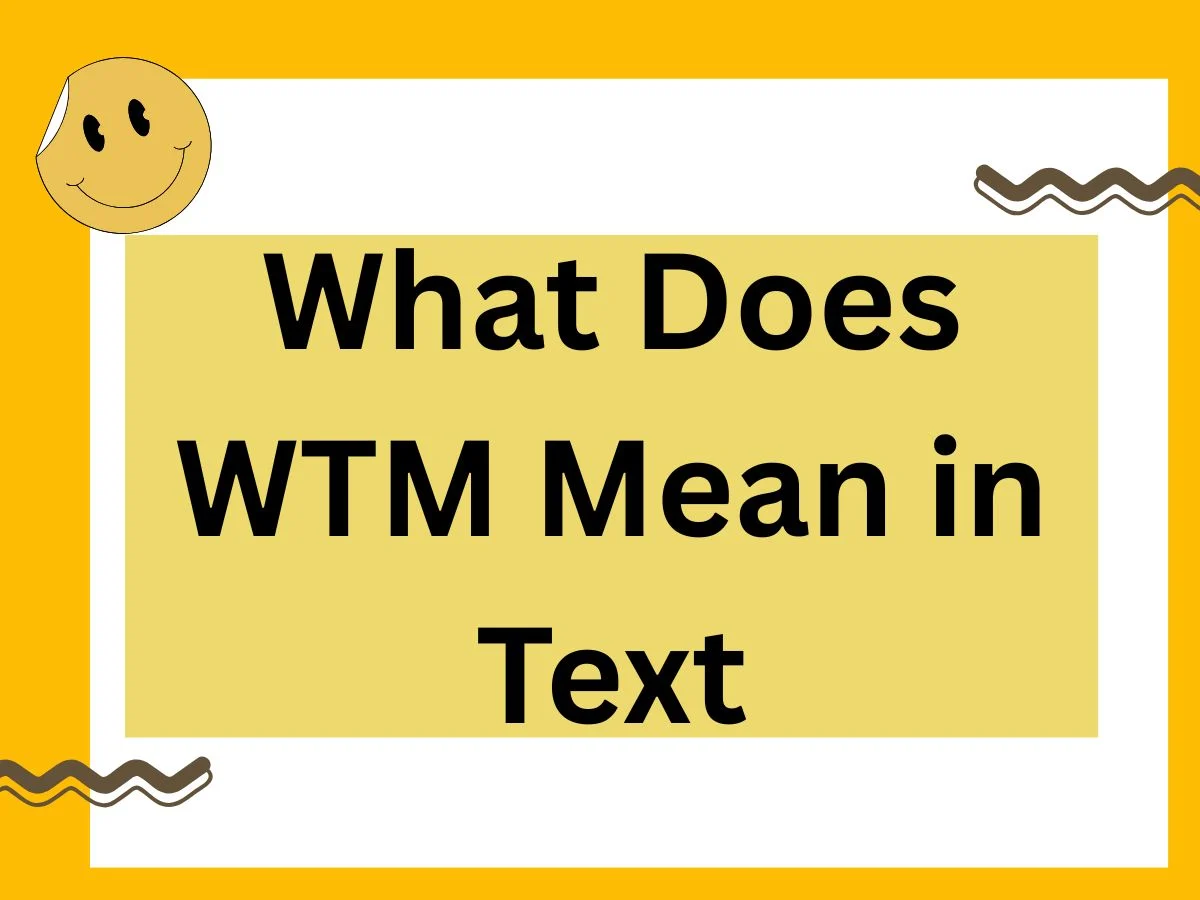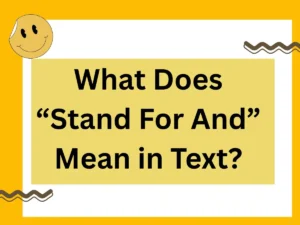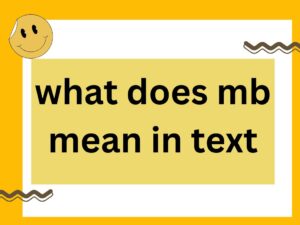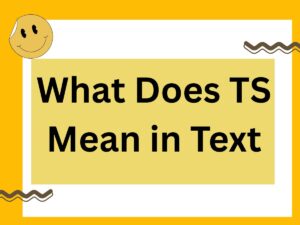Introduction
If you’ve been scrolling through Instagram DMs, chatting on Snapchat, or catching up with friends in a group chat lately, there’s a good chance you’ve seen the abbreviation WTM pop up. And if you’re wondering, “What does WTM mean in text?”—you’re not alone.
🔥 Rizz Line Generator 🔥
In 2025, WTM is still one of those shorthand expressions that slips in and out of conversations across generations, but it’s especially popular among younger demographics who live in the fast, casual rhythm of digital conversation. Understanding what it means, when to use it, and when not to use it isn’t just a matter of memorizing its definition—it’s about understanding tone, context, and evolving usage trends.
In this guide, we’ll break down exactly what WTM means today, how it has evolved, what its tone communicates, and give you 10 polished alternatives so you can always hit the right note, whether you’re messaging a friend, planning an event, or chatting in a professional setting.
Meaning of WTM in 2025
In texting and online chat, WTM most often stands for:
“What’s the Move?”
It’s an informal way to ask someone about their plans or intentions—often in a social or casual context. Depending on the tone, it can mean:
- “What are we doing?”
- “Where are we going?”
- “What’s happening?”
- “What should we do next?”
Variations of WTM in Current Use
While “What’s the move?” is still the dominant meaning, by 2025 WTM has developed other interpretations depending on region, age group, and platform:
- What’s the Mood? – Used in group chats or gaming to ask about the vibe or emotional state.
- Example: “Long week. WTM for tonight? Chill or go out?”
- Want to Meet? – Common in dating app conversations or when making casual plans.
- Example: “We’re both free after work. WTM?”
- What’s the Matter? – Rare, but occasionally used in concerned tone contexts.
- Example: “You’ve been quiet lately… WTM?”
Why WTM Works in Digital Communication
- Brevity: Saves time while keeping the conversation flowing.
- Flexibility: Can refer to both physical activities and virtual ones.
- Social Signal: Indicates initiative without demanding commitment.
- Cultural Currency: Signals that you’re “in tune” with contemporary online lingo.
Etymology & Evolution
WTM started appearing in digital spaces in the mid-2010s, but it didn’t gain mass traction until 2019–2020 on Snapchat and Instagram among younger users. By 2022, it had spread into TikTok captions and comments.
The phrase “What’s the move?” has been part of spoken slang for decades, often used in nightlife and party contexts. It simply shifted into acronym form to suit fast-paced mobile texting culture.
By 2025, WTM has:
- Expanded beyond party planning to daily casual check-ins (“WTM for lunch?”).
- Crossed into gaming chats as a way to strategize (“WTM? Push or hold?”).
- Appeared in brand marketing targeting youth audiences (“Friday night? WTM.”).
Tone & Context: How WTM Feels to the Reader
One of the biggest mistakes people make is thinking abbreviations are tone-neutral. In reality, WTM can read very differently depending on when and how you use it.
Casual/Friendly
- Tone: Relaxed, curious, open-ended.
- Example: “Hey, it’s Saturday… WTM tonight?”
Flirty
- Tone: Playful, suggestive, inviting.
- Example: “I’m bored. WTM? 😉”
Professional
- Rarely appropriate. In work chats, use more formal language like “What’s our plan?” or “What’s next on the agenda?”
Concerned
- Tone: Supportive, checking in.
- Example: “You’ve been offline for days—WTM?”
When WTM Might Not Be the Best Choice
Even though WTM is quick and versatile, there are times you should avoid it:
- In Formal Conversations – Emails, work chats, or business networking.
- When Clarity is Key – In urgent or complex planning situations.
- Cross-Generational Chats – Not everyone will understand the abbreviation.
- With Strangers – Can feel abrupt or impersonal.
10 Polished Alternatives to WTM (With Context & Examples)
If you want to keep the conversational flow but adapt to the audience or situation, here are 10 refined options:
1. What’s the Plan?
- Use When: Coordinating with friends or colleagues.
- Example: “We’re meeting after work—what’s the plan?”
2. Are We Still On?
- Use When: Confirming pre-made arrangements.
- Example: “Dinner at 7? Are we still on?”
3. What’s Up Next?
- Use When: Moving from one task or activity to another.
- Example: “We wrapped the meeting early—what’s up next?”
4. What’s Happening?
- Use When: Wanting an update in casual chats.
- Example: “I just logged on—what’s happening?”
5. What Do You Want to Do?
- Use When: Offering the other person a choice.
- Example: “It’s your birthday—what do you want to do?”
6. Any Plans?
- Use When: Starting a casual conversation.
- Example: “Hey, any plans this weekend?”
7. What’s the Mood?
- Use When: Gauging the vibe before making plans.
- Example: “Feeling lazy or adventurous—what’s the mood?”
8. Where to Now?
- Use When: Mid-outing or travel.
- Example: “We just finished lunch—where to now?”
9. Ready for What’s Next?
- Use When: In event or project settings.
- Example: “Break’s over—ready for what’s next?”
10. What’s Our Next Step?
- Use When: Professional and task-focused.
- Example: “The client approved the proposal—what’s our next step?”
Platform-Specific Usage in 2025
Snapchat & Instagram DMs
- WTM is most common here, often paired with photos, Bitmoji, or location tags.
TikTok Comments
- Used as a playful nudge (“You free later? WTM 👀”).
Discord & Gaming Chats
- Functions as a strategy check (“We have enough resources—WTM?”).
Workplace Platforms
- Rarely used unless the team is extremely casual and culturally aligned.
Projected 2025–2026 Trends for WTM
Based on current slang cycles:
- Emoji Pairing Will Increase: WTM will often be followed by 👀, 📍, or 📅.
- Shortened Further: May reduce to “W the move?” in niche groups.
- Geographic Drift: UK and Australian slang might blend with WTM, giving rise to hybrids like “WTM, mate?”
Final Thoughts
In 2025, WTM is far from just a trendy acronym—it’s a flexible tool for casual coordination, vibe-checking, and plan-making in fast-moving digital spaces. But as with all slang, the magic is in knowing your audience. Used with the right tone, it’s a friendly and efficient shorthand. Used in the wrong setting, it can feel lazy or out of place.
If you’re aiming for clarity, tone precision, and respect for context, keep these 10 alternatives handy. They give you the flexibility to adapt to any platform, audience, or vibe.





